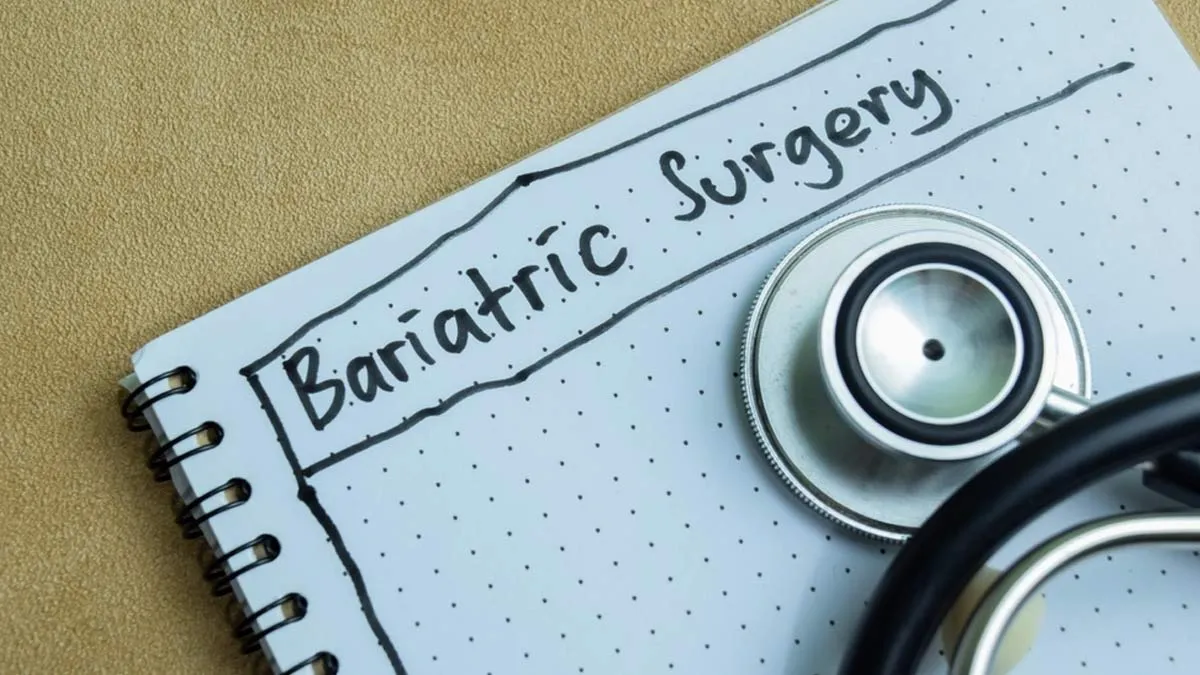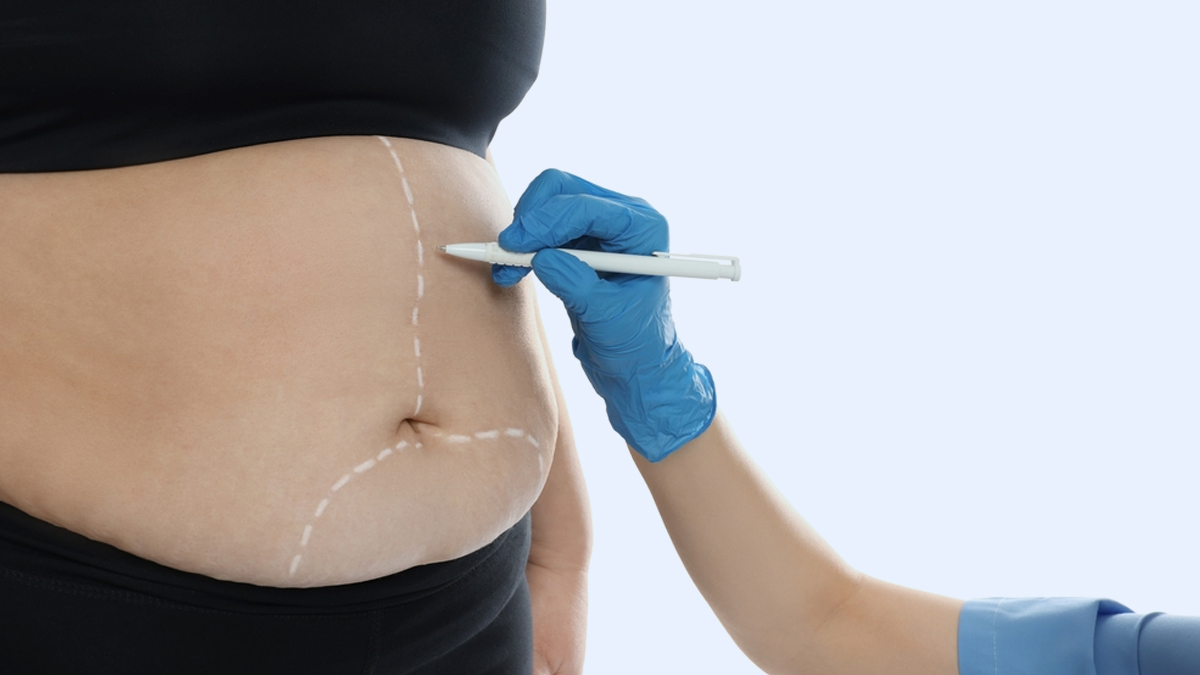
How do you make the most of your bariatric surgery results? Losing weight is just the beginning; maintaining it requires long-term lifestyle changes, including dietary habits. Since your stomach’s capacity is significantly reduced, the way you eat and what you eat needs to be carefully managed to ensure proper healing, prevent complications, and support sustained weight loss. If you’ve recently undergone bariatric surgery or are planning to, here are essential dietary tips to help you stay on track and maintain your progress.
Table of Content:-

According to the Nature Journal, bariatric surgery is a surgical option designed for individuals with morbid obesity to facilitate weight loss. Commonly performed procedures include Roux-en-Y gastric bypass, laparoscopic adjustable gastric banding, biliopancreatic diversion with duodenal switch, and sleeve gastrectomy.
Tips to Maintain Your Weight After Bariatric Surgery
1. Follow a Gradual Diet Progression

Immediately after surgery, your digestive system needs time to heal and adapt to the changes. Patients typically follow a phased diet plan:
- Liquid Diet (First 1-2 Weeks): Includes clear broths, sugar-free gelatin, protein shakes, and herbal teas.
- Pureed Foods (Weeks 3-4): Soft foods like mashed vegetables, yoghurt, and blended soups.
- Soft Foods (Weeks 5-6): Scrambled eggs, cottage cheese, and well-cooked vegetables.
- Regular Diet (After Week 6): Gradually reintroduce solid foods while focusing on portion control and balanced meals.
2. Prioritise Protein Intake
Protein is essential for muscle maintenance, healing, and preventing malnutrition. Aim for 60-80 grams of protein per day through sources, such as:
- Lean meats (chicken, turkey, fish)
- Eggs and egg whites
- Low-fat dairy products
- Plant-based proteins (tofu, lentils, beans)
- Protein shakes or supplements may be necessary to meet daily requirements, especially in the initial recovery phase.
Also Read: Pregnancy After Weight Loss Surgery: A Medical Guide to Safe Conception and Gestation
3. Eat Small, Frequent Meals

Since your stomach capacity is significantly reduced, large meals can lead to discomfort and digestive issues. Instead, opt for 4-6 small meals throughout the day. This helps prevent overeating, stabilises blood sugar levels, and promotes sustained energy.
4. Chew Food Thoroughly and Eat Slowly
Post-surgery, your digestive system processes food differently. Chewing food well (at least 20-30 times per bite) and eating slowly prevents complications like dumping syndrome, which can cause nausea, dizziness, and diarrhoea. Take at least 20-30 minutes per meal and stop eating once you feel full.
5. Stay Hydrated but Avoid Drinking with Meals

Aim for 64 ounces (about 2 litres) of water daily, but avoid drinking liquids with meals can cause the stomach to fill too quickly, leading to discomfort and inadequate nutrient intake. It's recommended to avoid drinking beverages 15 minutes before and 30 minutes after eating. This practice helps prevent overfilling the stomach and ensures better digestion, according to a 2017 study.
Stick to non-carbonated, sugar-free beverages, such as:
- Water
- Herbal teas
- Diluted fruit juices (in moderation)
- Clear broths
Also Read: Gastric Sleeve Surgery Vs Gastric Bypass: Uses, Benefits, And Side Effects
6. Avoid Calorie-Dense and High-Fat Foods
Foods high in fats and sugars can hinder weight loss and may cause dumping syndrome, a condition where food moves too quickly through the digestive system, leading to nausea, vomiting, and dizziness. Avoid fried foods, sugary snacks, and high-fat meats. Instead, focus on nutrient-dense options like vegetables, whole grains, fruits, and lean proteins, as stated by Johns Hopkins Medicine.
7. Monitor Your Vitamin and Mineral Intake
After bariatric surgery, nutrient absorption may be affected, increasing the risk of deficiencies. Your doctor may recommend daily supplements, including:
- Multivitamins
- Calcium with Vitamin D
- Iron (especially for women)
- Vitamin B12
- Folate
- Regular blood tests will help monitor and adjust supplementation as needed.
8. Avoid Alcohol and Caffeine
Alcohol is quickly absorbed post-surgery and can lead to intoxication faster than before. It also adds unnecessary calories and may contribute to weight gain. Caffeine, found in coffee and energy drinks, can irritate the stomach lining and lead to dehydration. It’s best to limit or avoid both.
9. Monitor Eating Patterns
Be mindful of eating habits leading to weight gain, such as frequent snacking or nighttime eating. Establishing regular meal times and avoiding grazing can help maintain weight loss. If you notice patterns like night eating, associated with weight gain, consider seeking guidance from a healthcare professional, as stated in the Gastroenterology Research and Practice.
10. Stay Active and Maintain a Healthy Lifestyle
Diet alone is not enough to maintain weight loss. Include regular physical activity, such as walking, strength training, or yoga in your daily routine. Consult your doctor before starting an exercise routine to ensure safety.
[Disclaimer: This article contains information for informational purposes only. Hence, we advise you to consult your professional if you are dealing with any health issue to avoid complications.]
Also watch this video
How we keep this article up to date:
We work with experts and keep a close eye on the latest in health and wellness. Whenever there is a new research or helpful information, we update our articles with accurate and useful advice.
Current Version
